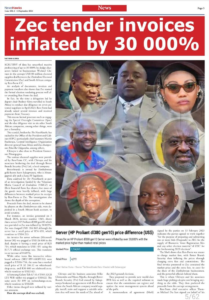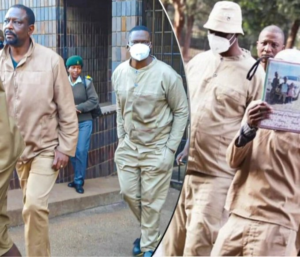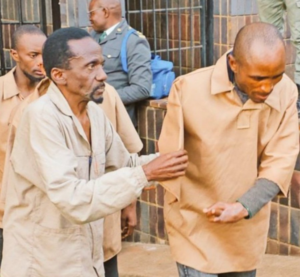HIGH COURT GRANTS BAIL TO THREE ACTIVISTS IN ZIMBABWE

In Zimbabwe, the High Court has given bail to three opposition and pro-democracy activists. The activists are Namatai Kwekweza, Robson Chere, and Samuel Gwenzi. These three were arrested on 31 July 2024. They were arrested with another person named Vusumuzi Moyo, who is an artist and sound engineer. The arrests took place at the Robert Mugabe International Airport in Harare. The group was on a flight to Victoria Falls to attend the African Philanthropy Conference.
Police officers seized them forcibly from the plane before it took off. The police said they had to arrest them because they were planning to cause disorder in public. This type of charge comes from old colonial-style laws that Zimbabwe still uses today. The arrests happened just before a big meeting of the Southern African Development Community (SADC), which was being held in Harare.
The arrest of these activists is part of a larger crackdown on civil society. Civil society groups, which include organizations that push for human rights and democracy, have faced many problems. The government has been trying to stop opposition political activists from gathering or speaking up, especially around big events like the SADC summit. This crackdown shows how difficult it is for people in Zimbabwe who want to push for democracy and change. Many of them face arrests, harassment, and other challenges from the government.
Robson Chere, one of the three arrested, had a very hard time while in police detention. Reports say that Chere was badly tortured while he was held by the police. He was hurt so badly that his injuries were life-threatening. Even though his condition was very serious, Chere was not given medical attention. This raised concerns among human rights groups, who say that the Zimbabwe police use torture too often, and they deny people their basic rights. Chere’s case is one more example of the tough challenges that activists face in Zimbabwe.
After several days in detention, Kwekweza, Chere, and Gwenzi were taken to court. The Zimbabwe Lawyers for Human Rights (ZLHR) were the lawyers who represented them. ZLHR is a group that helps people who are being treated unfairly by the state. The group has been very active in Zimbabwe, defending many activists, journalists, and others who have been unfairly treated by the government.
The High Court, after hearing the case, agreed to release the three activists on bail. This means that they do not have to stay in prison while waiting for their trial. But, the court gave them some strict bail conditions that they must follow. If they do not follow these conditions, they could be arrested again.
The bail conditions are:
- They must pay US$150 or the equivalent amount in Zimbabwean currency (ZiG).
- They must report to the police station every last Friday of the month.
- They must not interfere with any state witnesses.
- They must live at specific residential addresses and cannot move without telling the authorities.
These conditions are quite strict, and it shows that the government is still keeping a close eye on them. Even though they are out on bail, they are still not fully free. The government likely wants to make sure that they cannot continue with their activism easily while out on bail.
The release of Kwekweza, Chere, and Gwenzi on bail has been seen as a small victory for human rights in Zimbabwe. But many people are still worried about the situation in the country. The use of colonial-style laws to stop opposition and civil society activists shows that there is still a long way to go for true freedom in Zimbabwe.
As the trial for these activists continues, many people are watching closely. There is hope that justice will be done, but there is also fear that the government will continue to try and stop any opposition to its rule. The struggle for democracy and human rights in Zimbabwe continues, with activists like Kwekweza, Chere, and Gwenzi at the forefront of this difficult fight.



